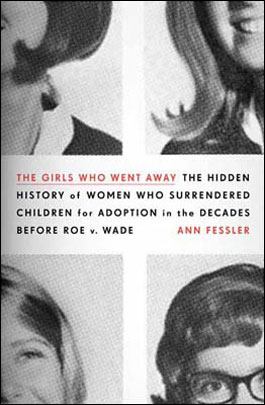
The years before Roe v. Wade are often conjured in images of dark alleys and coat hangers. But for more than a million young women who unintentionally got pregnant during the three decades before Roe, the option of last resort was not an illegal abortion but banishment to institutions for “wayward mothers,” where they gave birth to babies they were then forced to give up for adoption.
The Girls Who Went Away presents the oral histories of more than 100 women who were sent away as expectant teenagers. Now grandmothers, they recount the terror and shame of getting pregnant in an era when sex was shrouded in denial and youthful exploration was blamed on girls’ “sexual delinquency” or “neurosis.” When accidents inevitably happened, mortified parents and clergy stepped in with elaborate attempts to hide the truth. One woman recalls how she was sent to live with another family while her parents pretended she’d gone on a months-long vacation: “I was given a sun lamp to make sure that when this was all over I looked like I had spent this time in Florida.”
Fessler, who was put up for adoption by her 19-year-old mother in 1949, has uncovered a buried, but not too distant, chapter of the American war on sex. The women she interviewed hear echoes of their experiences in the current abstinence-only movement and the nostalgic notions of chastity behind it. Yet as The Girls Who Went Away reminds us, for every Patty Duke enjoying a good-night peck on the cheek, there was a real-life teen in the backseat of a Chevy with nothing more than a hope and a prayer for protection.















